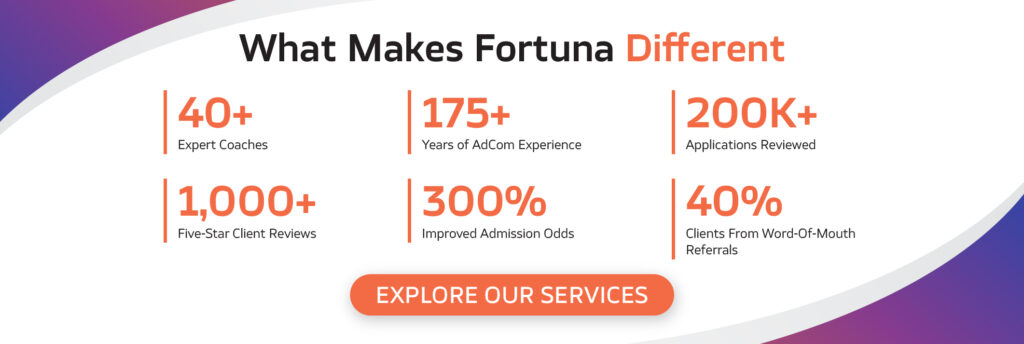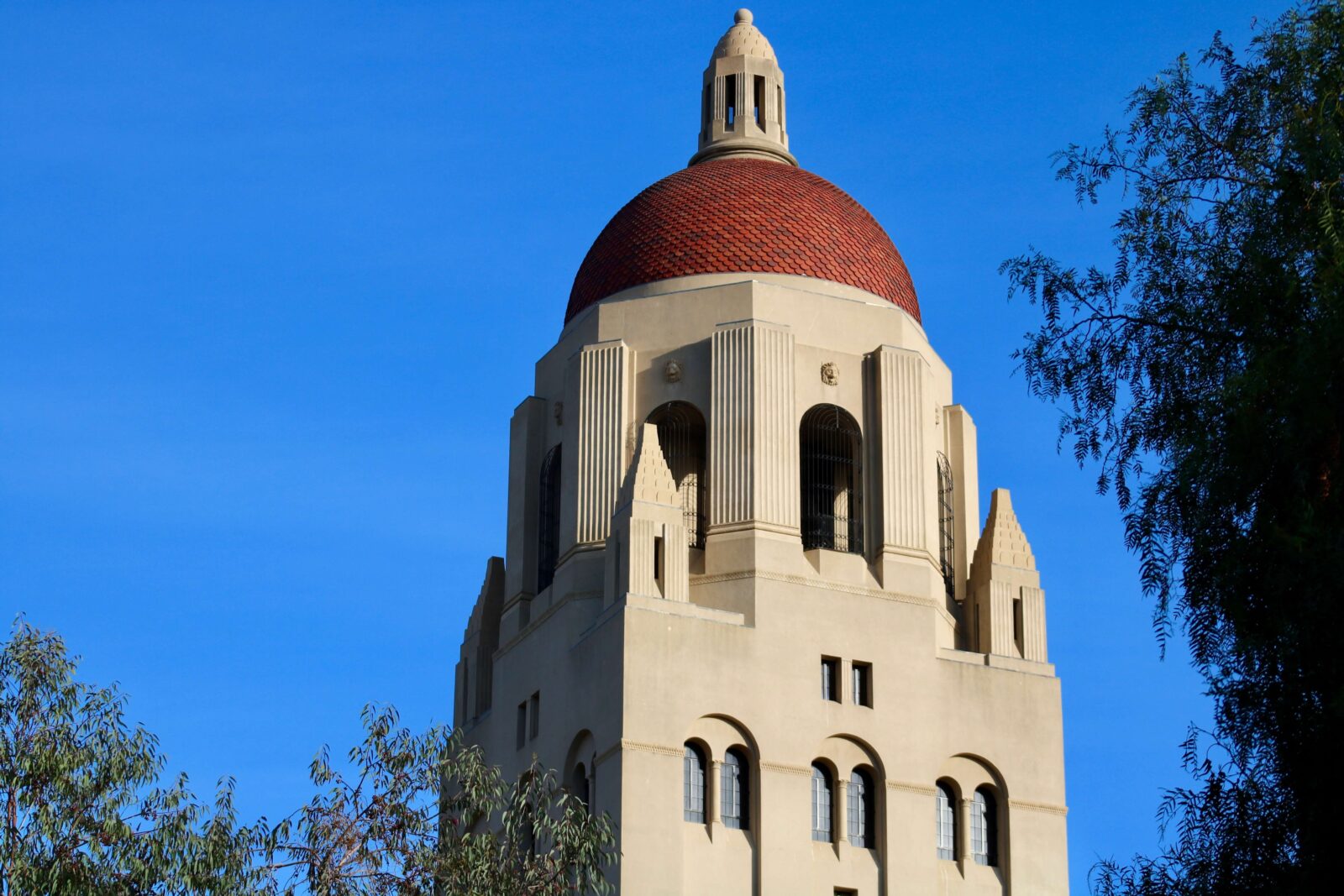The Stanford GSB MBA interview is a behavioral interview conducted by an alum and focused on delving into your past actions, decisions, and outcomes. Expect 30–40 minutes of probing questions like “Tell me about a time you led a team” or “Describe a challenge you overcame.” To prepare, identify examples you can draw on from your experience that show leadership, teamwork, impact, and self-awareness, and practice responding to sample questions using the STAR method (Situation, Task, Action, Result).
Context: Stanford GSB remains the most selective business school in the world, with an acceptance rate around 6%. Being invited to interview means you’ve already cleared one of the toughest hurdles in MBA admissions. The school’s behavioral interview style is driven by the belief that past performance is the best predictor of future success, and your interviewer will be looking for real evidence of your character and decision-making in action.
What to Expect from the Stanford GSB Interview
In stark contrast to the HBS interview, which is administered by admissions staff who have read your entire application and clocks in at 30 minutes, Stanford GSB interviews are conducted blind, with only your resume, by a Stanford GSB alum. The typical flow is a brief intro, 30-40 minutes of behavioral questions, and 15 minutes about the Stanford experience. Most candidates are asked to give a short self-introduction, so be sure to craft your MBA elevator pitch. The interview will be conversational; you can expect the interviewer to be pleasant, and you’ll have the invaluable opportunity to ask those nitty-gritty questions at the end that only someone who has gone through the program can respond to.
But don’t be fooled by the collegial and friendly vibe – GSB’s behavioral interview requires your thorough and thoughtful preparation. The key to success is not just thinking about answers to standard questions (why the MBA, why this school, etc.), but coming up with specific – and substantive – situational examples.
To truly stand out, focus on aligning your stories with what the Stanford MBA application process is designed to evaluate: authenticity, intellectual curiosity, and growth.
What Stanford GSB Interviewers Are Looking For
Stanford GSB interviewers are seeking more than just polished answers – they’re looking for authentic insight into how you think, lead, and learn from experience. They are trained to probe deeply using the behavioral interview method, looking for real evidence of the qualities that define the Stanford community: purposeful leadership, intellectual curiosity, and a growth mindset.
Every question is designed to uncover the “why” behind your actions – your motivations, judgment, and the ripple effects of your decisions. Expect your interviewer to dig deep into your examples to understand how you respond under pressure, collaborate with others, and translate ideas into impact.
The most successful candidates convey:
- Leadership rooted in authenticity. You don’t need to have managed a large team; what matters is how you’ve inspired, influenced, or taken initiative to create meaningful change.
- Self-awareness and reflection. Stanford values candidates who are introspective about their strengths, weaknesses, and growth. Be candid about what you learned, including from failure – not just from your successes.
- Intellectual vitality. Show genuine curiosity and enthusiasm for learning, whether through innovative thinking, creative problem-solving, or the ability to connect ideas across disciplines.
- Collaborative mindset. GSB interviewers look for humility, empathy, and respect for others’ perspectives – hallmarks of the inclusive, team-oriented environment Stanford cultivates.
Ultimately, GSB interviewers are seeking authentic, self-aware leaders who act with purpose and bring out the best in others. They want to see evidence that you’ll not only thrive at Stanford but will use your MBA to make a meaningful difference in the world.

How to Prepare for Your Stanford GSB MBA Interview
Stanford’s interview is almost entirely a behavioral interview. You’ll be asked to describe situations where you demonstrated leadership, teamwork, problem-solving, or resilience. The interviewer will dig deeper — not just into what you did, but why you did it, how others responded, and what you learned.
Use the STAR framework (Situation, Task, Action, Result) to structure your responses. It helps you stay concise and focused while ensuring you address what the interviewer really wants to know: How do you operate under pressure? How do you make decisions? What impact did you have?
Build Your “Swiss Army Knife” Stories
A useful preparation strategy is to develop a small set of versatile examples – your “Swiss Army knife” stories. These are rich, multidimensional experiences that can be adapted to a range of questions. For example, one story might illustrate both teamwork and strategic thinking, or another might reveal leadership and resilience in the face of failure.
Aim for 4-6 stories that draw from your professional, extracurricular, or personal life. Choose moments that show initiative, collaboration, integrity, and growth – and be ready to discuss them in depth from multiple angles. Practice articulating not just the outcome, but your reasoning, emotions, and lessons learned.
Use the Stanford Leadership Behavior Grid as a Guide
As you refine your stories, use the Stanford Leadership Behavior Grid (the framework that was included with your recommender materials) as a checklist for the traits and behaviors GSB values. It evaluates qualities such as:
- Initiative and Results Orientation: Do you take charge and push beyond what’s expected?
- Communication and Influence: Can you inspire others and adapt your style to different audiences?
- Team Leadership and Developing Others: How do you empower those around you to excel?
- Integrity and Self-Awareness: Do your actions align with your principles, and can you reflect honestly on your growth?
- Adaptability and Resilience: How do you handle setbacks and ambiguity?
- Strategic Orientation and Problem-Solving: Do you think beyond the immediate task and see the bigger picture?
Review your stories through this lens and ask yourself: Which behaviors does this example best illustrate? What would my interviewer learn about my leadership from this example?
Prepare Your Own Questions For Your Interviewer
You’ll also want to be ready with meaningful questions to ask at the end of the interview. “This kind of thoughtful preparation demonstrates your genuine interest in learning more about mutual fit,” writes my Fortuna colleague Malvina Miller Complainville in her article on MBA Interview Tips. “If you know your interviewer’s name ahead of time, do your research – look him/her up on LinkedIn for example. Considering your interviewer’s profile will help you tailor your questions accordingly. For alumni, you have a valuable opportunity to learn from their experience and glean insights that can also help inform your decision.”

Practice Under Real Conditions
Finally, simulate the interview setting. Practice aloud with a trusted peer or, ideally, with an experienced MBA admissions coach who can probe with follow-up questions. Time your answers, record yourself, and refine your pacing and tone. This process will build comfort and authenticity – so you can enter the interview ready to have a thoughtful, engaging conversation.
For the most effective preparation, consider a mock interview with a Fortuna coach; a number of us are former Stanford GSB admissions interviewers. We can provide insider feedback on your delivery, content, and overall impression – helping you refine your responses and show up as your best self on interview day.
Don’t miss this invaluable 14-minute video strategy session with Fortuna interview experts Heidi Hillis and Malvina Miller Complainville. They discuss what distinguishes a strong performance and how to stand out in the Stanford GSB interview, focusing on reflection, authenticity, and clear articulation of your impact.
Real Stanford GSB MBA Interview Questions
With behavioral interview questions, your interviewer will be delving for very specific examples of what you did – along with why, what was going through your mind at the time, the impact on others, and the outcome. A lead-in question such as, “tell me about a time you made an impact,” might be followed up with probes like, “what led to the situation? Who was involved? How did they respond? What happened next?”
Here’s a list of Stanford GSB interview questions by theme reported by recent MBA candidates, collected from our clients by me and my Fortuna Admissions colleagues.
Challenge
- Tell me about a time you faced a challenge at work and how you influenced the outcome.
- Tell me about a time when you faced a roadblock in completing a project.
- Tell me about a time when you dealt with someone who was difficult. How did you handle that situation?
- Tell me about a time when you didn’t agree with an idea. How did you work to reach a resolution?
Teamwork
- Tell me about a time you worked well within a team.
- Tell me about a time you were effective on a team you were not in charge of.
Leadership
- Tell me about a leadership experience.
- Tell me about a time when you led a team.
- Describe a time when you led a team and convinced someone to accept your ideas. Did anyone recognize your efforts?
- Tell me about a time when you had to take authority of a team.
- What is your leadership style?
Going Above and Beyond
Tell me about a time…
- … you stepped outside your typical role.
- … when you pursued an initiative beyond my job authority.
- … you overstepped an authority.
- … when you saw an opportunity that others didn’t.
Failure and Lessons Learned
- Tell me about a time when you failed to reach your goals.
- Describe a situation when, while leading a team, you failed. How did you react? What did you learn from this?
- Tell me about a time you faced a disappointment.
Personal
- What do you like to do outside of work?
- Tell me about a defining moment in your life.
- Anything about yourself you wished you could change?
- What’s your biggest accomplishment—both work and outside work?
- What drives you?
These questions reflect the behavioral interview approach, probing for judgment, decision-making, and values.

Let’s Get You Into Stanford GSB
When it’s interview time, trust your instincts. There’s neither an ideal candidate nor a typical Stanford student. Be confident in who you are and what you’ve done – and be open to learn. Remember, an interview invitation means the school already sees potential in your Stanford GSB candidacy. Your job is to confirm that impression with authentic, well-prepared answers.
At Fortuna Admissions, our team of former admissions directors and seasoned MBA coaches from the world’s top business schools can support you throughout the Stanford MBA application process – whether you’re assessing your Stanford GSB chances, refining the nitty-gritty of your application, or ensuring you shine in the interview itself.
Book a free consultation to discover how Fortuna’s experts can help you present your most authentic, compelling self – and maximize your chances of admission to Stanford GSB.
Frequently Asked Questions
You can also view one of our top resources, the MBA Admissions Essay Masterclass featuring Stanford GSB, below.
All MBA Admissions Essay Masterclasses in our series, featuring insider advice from 14 former gatekeepers from 14 of the world’s top business schools, are available on Fortuna’s YouTube channel.




